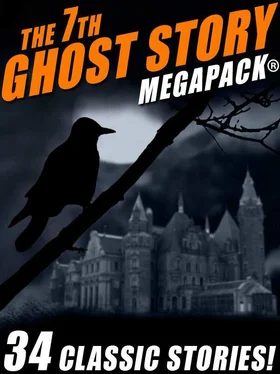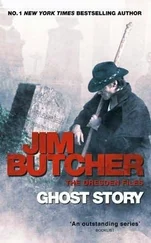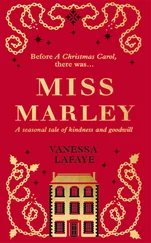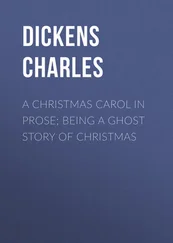“Caroline,” said Charles, “I have had some very odd dreams since I have been at Tappington.”
“Dreams, have you?” smiled the young lady, arching her taper neck like a swan in pluming. “Dreams, have you?”
“Ay, dreams,—or dream, perhaps, I should say; for, though repeated, it was still the same. And what do you imagine was its subject?”
“It is impossible for me to divine,” said the tongue;—“I have not the least difficulty in guessing,” said the eye, as plainly as ever eye spoke.
“I dreamt—of your great grandfather!”
There was a change in the glance—“My great grandfather?”
“Yes, the old Sir Giles, or Sir John, you told me about the other day: he walked into my bedroom in his short, cloak of murrey-coloured velvet, his long rapier, and his Raleigh-looking hat and feather, just as the picture represents him: but with one exception.”
“And what was that?”
“Why, his lower extremities, which were visible, were—those of a skeleton.”
“Well.”
“Well, after taking a turn or two about the room, and looking round him with a wistful air, he came to the bed’s foot, stared at me in a manner impossible to describe,—and then he—he laid hold of my pantaloons; whipped his long bony legs into them in a twinkling; and strutting up to the glass, seemed to view himself in it with great complacency. I tried to speak, but in vain. The effort, however, seemed to excite his attention; for, wheeling about, he showed me the grimmest-looking death’s head you can well imagine, and with an indescribable grin strutted out of the room.”
“Absurd! Charles. How can you talk such nonsense?”
“But, Caroline,—the breeches are really gone.”
* * *
On the following morning, contrary to his usual custom, Seaforth was the first person in the breakfast parlour. As no one else was present, he did precisely what nine young men out of ten so situated would have done; he walked up to the mantel-piece, established himself upon the rug, and subducting his coat-tails one under each arm, turned towards the fire that portion of the human frame which it is considered equally indecorous to present to a friend or enemy. A serious, not to say anxious, expression was visible upon his good-humoured countenance, and his mouth was fast buttoning itself up for an incipient whistle when little Flo, a tiny spaniel of the Blenheim breed,—the-: pet object of Miss Julia Simpkinson’s affections, bounced from beneath a sofa, and began to bark at—his pantaloons.
They were cleverly “built,” of a light grey mixture, a broad stripe of the most vivid scarlet traversing each seam in a perpendicular direction from hip to ankle,—in short, the regimental costume of the Royal Bombay Fencibles. The animal, educated in the country, had never seen such a pair of breeches in her life— Omne ignotum pro magnifico! The scarlet streak, inflamed as it was by the reflection of the fire, seemed to act on Flora’s nerves as the same colour does on those of bulls and turkeys; she advanced at the pas de charge , and her vociferation, like her amazement, was unbounded. A sound kick from the disgusted officer changed its character, and induced a retreat at the very moment when the mistress of the pugnacious quadruped entered to the rescue.
“Lassy me! Flo! what is the matter?” cried the sympathising lady, with a scrutinising glance levelled at the gentleman.
It might as well have lighted on a feather bed.—His air of imperturbable unconsciousness defied examination; and as he would not, and Flora could not expound, that injured individual was compelled to pocket up her wrongs. Others of the household soon dropped in, and clustered round the board dedicated to the most sociable of meals; the urn was paraded “hissing hot,” and the cups which “cheer, but not inebriate,” steamed redolent of hyson and pekoe; muffins and marmalade, newspapers and Finnon haddies, left little room for observation on the character of Charles’s warlike “turn-out.” At length a look from Caroline, followed by a smile that nearly ripened to a titter, caused him to turn abruptly and address his neighbour. It was Miss Simpkinson, who, deeply engaged in sipping her tea and turning over her album, seemed, like a female Chrononotonthologos, “immersed in cogibundity of cogitation.” An interrogatory on the subject of her studies drew from her the confession that she was at that moment employed in putting the finishing touches to a poem inspired by the romantic shades of Bolsover. The entreaties of the company were of course urgent. Mr Peters, “who liked verses,” was especially persevering, and Sappho at length compliant. After a preparatory hem! and a glance at the mirror to ascertain that her look was sufficiently sentimental, the poetess began:
“There is a calm, a holy feeling,
Vulgar minds can never know,
O’er the bosom softly stealing—
“Chasten’d grief, delicious woe!
Oh! how sweet at eve regaining
Yon lone tower’s sequester’d shade—
Sadly mute and uncomplaining—”
Yow!—yeough!—yeough!—yow!—yow! yelled a hapless sufferer from beneath the table.—It was an unlucky hour for quadrupeds; and if “every dog will have his day,” he could not have selected a more unpropitious one than this. Mrs Ogleton, too, had a pet,—a favourite pug,—whose squab figure, black muzzle, and tortuosity of tail, that curled like a head of celery in a salad-bowl, bespoke his Dutch extraction. Yow! yow! yow! continued the brute,—a chorus in which Flo instantly joined. Sooth to say, pug had more reason to express his dissatisfaction than was given him by the muse of Simpkinson; the other only barked for company. Scarcely had the poetess got through her first stanza, when Tom Ingoldsby, in the enthusiasm of the moment, became so lost in the material world, that, in his abstraction, he unwarily laid his hand on the cock of the urn. Quivering with emotion, he gave it such an unlucky twist, that the full stream of its scalding contents descended on the gingerbread hide of the unlucky Cupid.—The confusion was complete;—the whole economy of the table disarranged;—the company broke up most admired disorder;—and “Vulgar minds will never know” anything more of Miss Simpkinson’s ode till they peruse it in some forthcoming Annual.
Seaforth profited by the confusion to take the delinquent who had caused this “stramash” by the arm, and to lead him to the lawn, where he had a word or two for his private ear. The conference between the young gentlemen was neither brief in its duration nor unimportant in its result. The subject was what the lawyers call tripartite, embracing the information that Charles Seaforth was over head and ears in love with Tom Ingoldsby’s sister; secondly, that the lady had referred him to “papa” for his sanction; thirdly and lastly, his nightly visitations, and consequent bereavement. At the two first items Tom smiled auspiciously; at the last he burst out into an absolute “guffaw.”
“Steal your breeches!—Miss Bailey over again, by Jove,” shouted Ingoldsby. “But a gentleman, you say,—and Sir Giles too.—I am not sure, Charles, whether I ought not to call you out for aspersing the honour of the family.”
“Laugh as you will, Tom,—be as incredulous as you please. One fact is incontestible,—the breeches are gone! Look here—I am reduced to my regimentals, and if these go, tomorrow I must borrow of you!”
Rochefoucault says, there is something in the misfortunes of our very best friends that does not displease us—assuredly we can, most of us, laugh at their petty inconveniences, till called upon to supply them. Tom composed his features on the instant, and replied with more gravity, as well as with an expletive, which, if my Lord Mayor had been within hearing, might have cost him five shillings.
Читать дальше












